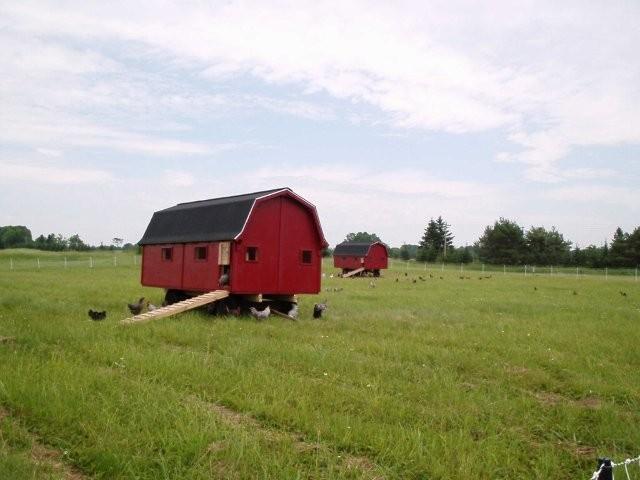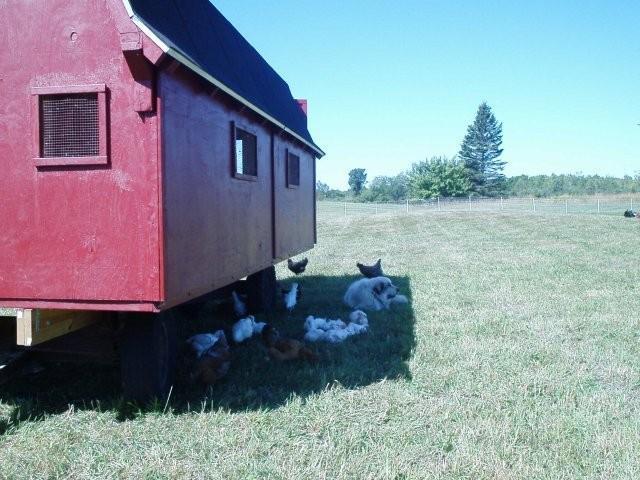Quote:
If you are going to use a commercial standard, go all the way. Debeak them, put in automatic climate control and poop handling equipment, restrict their feed, control their light, use extreme biosecurity measures. Do the things required to allow them to live in that space.
Or if you can pasture them 365 days a year where they have a very large amount of outside room from wake up until bedtime and the coop is just used for laying and sleeping, it can work very well. Under those conditions, they don't need the extra space. Several people on this forum manage their chickens this way quite well. Especially if they are only handling them this way during the good weather months. A movable electric fence for predator control is a great asset for this type management.
There are a lot of different factors that go into how much space chickens need. You can't just pick one thing and ignore all the other things that go into it. Maintaining commercial conditions or allowing unlimited free range 365 days a year are just not practical for a lot of people on this forum.
Agreed. I'm one of those crazy Americans that believes more is better - but only where my chickens are concerned. I'm a minimalist living in a very small house driving a small vehicle.
I have two coops - one is 8 X 8 (64 sq. ft) housing 11 hens. The other is 12 X 14 housing (168 sq. ft.) housing 18 pullets/hens and one young cockerel. There will be a few more added to that coop since I have a broody setting, but not many.
My chickens free range all day, every day and are only locked in at night or in the event of an emergency that's going to keep me away from home past dusk (roost time). I could get away with more chickens or less space but I won't. I like knowing that should something happen and the chickens have to stay locked up all day they will be comfortable and not overcrowed. Overcrowded conditions can lead to nasty habits like feather picking, egg eating, and other issues. Irritated chickens strike out and they do get irritable. It's why the commercial growers keep the lights in the chicken houses dim. I also have way more waterers and feeders than the "experts" say I need.
Over several years of chickenkeeping I have learned what works best for me and my chickens. What works for us in SW Arkansas, where summers are very hot, winters get downright chilly and we have predators galore (especially nighttime ones) is large coops with lots of air flow, a way to batten down the hatches in wintertime and room for the birds to move around and be comfortable. I've yet to have a feather picker, an egg eater or a bird injured in a fight with another bird. I figure I must be doing something right.
It's like Ridge said, you have to find the method out of all the different methods suggested that works best for you, your birds and your enviroment.
 Just a thought.
Just a thought.



